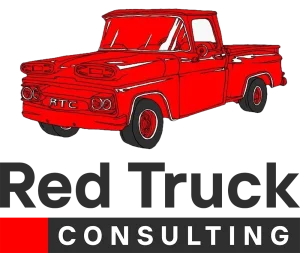Uncategorized Sep 18, 2023
I call myself a culture builder, a professional who has dedicated over 30 years to transforming toxic work environments. Today, as food service establishments grapple with a severe workforce shortage, the repercussions of a deeply ingrained toxic culture are more apparent than ever. Over the past three years, amidst the ongoing pandemic, food service workers have found their voice, collectively saying “enough is enough.” The industry grapples with issues such as low wages, poor working conditions, unreasonable schedules, lack of health benefits, unchecked harassment, inadequate leadership training, and the prevalence of dead-end job prospects – collectively shaping the pervasive culture within the hospitality sector. Despite these challenges, I firmly believe that it doesn’t have to be this way.
Defining Culture: In contemporary discourse, the term “culture” is frequently invoked, yet its comprehensive meaning often eludes many. I posit that culture is akin to the air we breathe – pervasive, integral, and often unnoticed. It constitutes the characteristics of everyday existence, embodying the social norms embraced by a community. At its essence, culture is the tangible expression of our values in the way we conduct our affairs.
Personal Anecdote: Allow me to illustrate this point with a personal anecdote. I was born into a family that held education in high regard. This value was not merely an abstract concept but an integral part of our family’s culture. The structures and practices cultivated by my parents were purposefully designed to serve the cause of education. Reflecting on my senior year in high school, I vividly recall a pivotal moment – a decision to fail physics in my last semester, a subject I struggled to comprehend. This deviation from the family’s established educational expectations resulted not only in anger but genuine incredulity from my family. I had, in their eyes, violated a fundamental tenet of our shared culture.
Impact of Undefined Values: When the foundational values that underpin a culture lack clarity, the culture assumes a life of its own. It becomes subject to the whims of personalities or the exigencies of circumstance. Whether it is the idiosyncrasies of a general manager or the culinary virtuosity of a head chef, these elements come to define the prevailing culture. In some instances, the imperative to turn a profit may supersede the commitment to providing a living wage. Urgency may override meticulous hiring practices. In essence, the daily imperative of serving food and sustaining a business takes precedence over deliberate culture building. Paradoxically, I argue that building a resilient and positive culture is the linchpin to creating a thriving business.
Intentional Culture Building: The transformation of culture requires intentional efforts, serving as an authentic expression of our values. To envision an industry shedding the weight of a century-old reputation for toxic culture, it is imperative to commence with a rigorous definition of values. Subsequently, a critical examination is warranted to assess the alignment of existing cultural practices with these identified values.
Real-Life Examples: To provide tangible insights into translating these principles into actionable strategies, consider the following real-life examples:
- A Posted Code of Conduct: Many establishments have embraced transparency by prominently displaying a code of conduct. This document outlines the expectations and behaviors anticipated from anyone entering the establishment. Such codes are often visibly posted in high-traffic areas, like hallways near restrooms.
- Regular and Consistent Schedules: Respecting the individual needs of team members entails the establishment of regular and consistent schedules. This practice fosters an environment of predictability and stability, contributing to overall job satisfaction.
- Clearly Articulated Wage Scales and Advancement Pathways: A transparent approach to compensation, coupled with well-defined pathways for professional growth, is pivotal. This not only ensures fair remuneration but also provides employees with a tangible roadmap for career progression.
- Harassment Protection Policies: Implementing policies explicitly designed to safeguard everyone from harassment represents a foundational element of a positive culture. The key lies in the universal application of these policies, ensuring a consistent and equitable approach.
- Culture Document: Crafting a culture document serves as a compass, clearly delineating the ethos and values that underpin the organization. This document becomes a touchstone for every member of the team, providing a shared understanding of the collective vision.
Misconceptions: To underscore the importance of intentional culture building, consider a poignant example. I once queried a struggling restaurant owner about their establishment’s culture. The response, while candid, was revelatory. “We pay people exceptionally well, offer one of the highest wages, provide healthcare, and offer family meals.” However, it became evident that these offerings, while commendable, did not constitute a genuine culture. Rather, these elements should be foundational expectations within any reputable establishment. Consequently, it is not surprising that such an establishment garnered a negative reputation within the community and closed its doors within six months.
Cost-Effective Solutions: Dispelling the notion that building a positive culture necessitates exorbitant expenditure, the enumerated cultural elements are, in fact, cost-effective. While remunerating employees fairly does entail a financial commitment, the broader practices of intentional and consistent culture-building are inherently affordable. These practices, rooted in transparency and intentionality, significantly contribute to the overall happiness and satisfaction of team members.
Conclusion: In conclusion, for those seeking further insights and a deeper understanding, I extend an invitation to reach out. Together, let us embark on a journey to not only envision but actively contribute to positive change within the industry’s cultural landscape. Through intentional and thoughtful practices, we have the power to catalyze a transformation that reverberates beyond individual establishments, fostering a culture that is not only sustainable but truly thriving.
